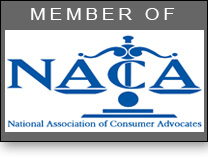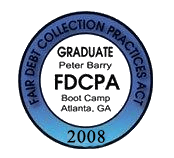By Latoya Irby
Economic recovery, manage your debt
The amount of debt you’re carrying is 30% of your credit score, so your credit card balance obviously impacts your credit score. Having big balances can hurt your credit score because it raises your credit utilization – the ratio of your credit card balance to your credit limit.
Some people, however, have concerns that a zero balance can harm their credit scores. It’s not true – a zero balance won’t bring down your credit score, unless however, you have a zero balance because you haven’t been using your credit card. In that case, the credit card issuer may stop sending credit report updates for that account and may even close the credit card, both of which can affect your credit score.
Zero Balance And Your Credit Report
Having a zero balance on your credit card, e.g. because you pay off your credit card in full every month, doesn’t mean that the zero balance will show up on your credit report – or that the zero balance will be used to calculate your credit score.
Here’s why: your credit card details are reported at various times throughout the month (usually on the account statement closing date) and could be reported on a day that your credit card balance is not $0. For example, if you make a purchase $100 on the 5th of the month and pay it in full on the 17th of the month, but your credit report was updated on the 12th of the month, your credit report won’t show a $0 balance.
Unless your balance is always zero, your credit report will probably show a higher credit card balance. Fortunately, not having a zero balance won’t hurt your credit score as long as the balance you do have isn’t too high (above 30% of the credit limit).
If you’re applying for a major loan soon and want to improve your chances of being approved, pay your credit card balances down and don’t make any additional purchases for a few weeks. That way, you can be sure a low (or zero) balance shows up on your credit report and is reflected in your credit score.
Your credit card balances have a direct impact on your credit score. Higher balances, in relation to your credit limit, will cause your credit score to drop.
Credit Scores Explained
Your credit score is like a numeric grade that’s applied to your credit history at a specific point in time. The credit score is based on the information that’s listed in your credit report. Your credit report includes information about your credit cards and loans. Things like the account balance, payment history, credit limit, and age of the account are listed on your credit report. The credit score is calculated based on a formula that gives weight to different parts of your credit history.
- Payment history counts 35% of your score
- Level of debt counts 30% of your score
- Length of credit history is 15% of your score
- Inquiries and mix of credit are 10% each
What High Balances Mean for Your Credit Score
Level of debt is sometimes referred to as your credit utilization – the amount your balances compared to your credit limits.
A lower credit utilization is better because it demonstrates you can responsibly use credit. So, having lower credit card balances will be rewarded with higher credit scores. On the other hand, a higher credit card balance will cost credit score points.
What’s a good balance to have? The absolute best balance is $0. Unless you never use your credit card, it will be impossible to keep a $0 balance on your credit card at all times. It’s more reasonable to keep your balance at or below 30% of your credit limit. That means you’ll never have more than $300 on a credit card with a $1,000 limit.
Once your balance starts to exceed the 30% threshold, you’ll notice your credit score decreasing.
If you habitually max out your credit cards, you could lose all points in the “level of debt” category of your credit score calculation.
Are There High Balance Loopholes?
Can you get away with charging more than 30% of your credit limit if you pay the balance down when your statement comes? Maybe, maybe not. If your credit card reports the balance before you have a chance to pay it down, that’s the balance that will be considered when your credit score is calculated.
That higher balance will remain on your credit report until the credit card company reports a new, lower balance.
Your credit report still lists a “high balance” which is the highest balance ever charged on your card. Any creditor or lender who views your credit report will know you once had a high balance on your credit card. Though they can tell whether you paid the bill on time or not, they can’t tell how quickly you repaid the balance. So, when it comes to a manual review of your credit report, the fact that you paid the balance when the bill came might not matter.













